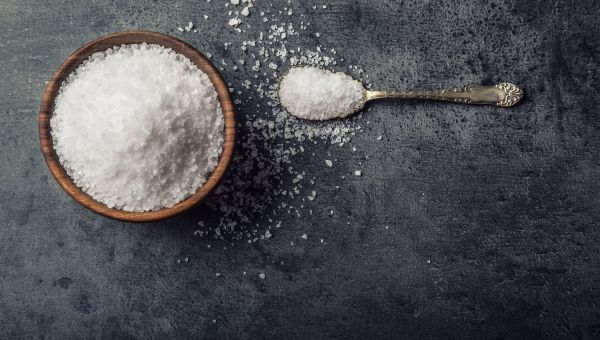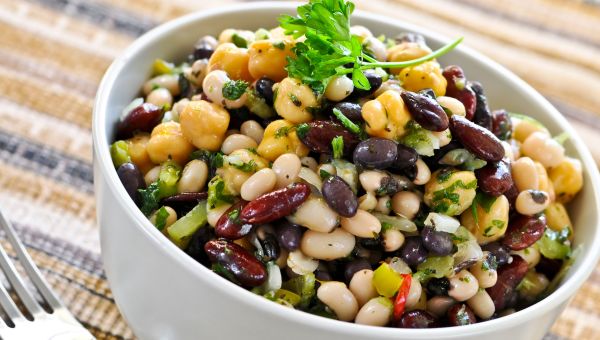9 ways to improve your heart health
What's good for your health in general is good for your heart.
Updated on March 18, 2024

What’s good for your overall health is generally good for your heart, according to Jason Smith, DO, a cardiologist with Our Lady of Lourdes Medical Center in Camden, New Jersey. “The heart’s only one aspect of health,” he says. “Everything is connected.” Dr. Smith shares some ways to help your heart and your health.

Get more sleep
“For general well-being, the number one thing is to get enough sleep,” says Smith. “You need good sleep for recuperation.” Most people need seven to eight hours a night, but some people need less, he says. One issue that can interrupt sleep is sleep apnea—when your airways briefly narrow during sleep, causing breathing to stop and then restart again —and other sleep conditions. “When you have problems sleeping, you don’t recover from the day. I can see the effects of sleep apnea on people’s hearts,” Smith says. Sleep apnea is associated with heart failure, stroke, high blood pressure and irregular heartbeats.

Get enough water
Your body is about 60 percent water, and that percentage is even higher in your heart—73 percent. So it makes sense that you need to stay properly hydrated to help keep your heart healthy. Water will help the blood move through your vessels more easily, putting less stress on the heart. “You need about 64 ounces of water every day,” says Smith. He recommends drinking two big glasses in the morning, one at lunch and one with dinner. Look at your urine—if it’s clear (or pale yellow), you’re getting enough water. If it’s dark, drink more.

Get moving
Exercise joins sleep, hydration and diet as another vital factor for heart health, says Smith. It can be especially important if you have a family history of heart disease.
An April 2018 study published in the American Heart Association's journal, Circulation, linked physical activity with a lower stroke and heart attack risk, even among those predisposed to heart health issues. Researchers looked at data from 482,702 U.K. adults between the ages of 40 and 69 and found that good hand grip strength and heart and lung fitness were connected to reduced chances of coronary artery disease (CAD, the most common form of heart disease in the U.S.) and atrial fibrillation (Afib, an irregular heartbeat).
Smith recommends thirty minutes of daily aerobic activity like walking, biking and swimming to help protect your heart. aerobic exercise. As you are able, try to get your heart rate up to about 70 percent of your maximum predicted heart rate. To find that max number, subtract your age from 220.
“In order to get a good heart workout and get collateral circulation—that’s building blood vessels in the heart—you need 30 minutes of sustained exercise at about 70 percent,” Smith says. The Centers for Disease Control and Prevention recommends 30 minutes per day of physical activity at least five days a week. It’s okay to start slow and work your way up. Even just a few minutes of movement can make a difference. Something is better than nothing, especially if you don't have a regular exercise routine.

Quit smoking
“Any smoke is bad, but the more you smoke, the higher your risk,” says Smith. Just one cigarette can raise your blood pressure and make your arteries stiffer. “Smoke three cigarettes and you’ve pretty much covered an entire day’s worth of inflammation,” adds Smith.
If you can’t quit right now, aim for cutting down with the goal of quitting. You can track your tobacco use (and monitor your progress towards quitting smoking) with a smart phone app or a written journal.
“If you go from three packs a day to one pack, I’ll applaud you,” he says. “You’ve done yourself a good service. But cessation is key.”

Stress less
You can never underestimate the effects of stress on well-being, says Smith. According to research from January 2017, people who are stressed have high activity in an area of the brain called the amygdala, which is linked to an increased risk of heart attack and stroke. Stress can even cause a heart attack-like condition known as stress cardiomyopathy, a reversible heart condition brought on by intense physical or emotional stress. “Exercise is at the top of the list in terms of stress reduction, and meditation is a close second,” says Smith.

Reduce salt in your diet
Americans eat, on average, 3,440 milligrams (mg) of sodium—salt—per day, far higher than the recommended 2,400 mg per day. Too much sodium can make already-high blood pressure even higher, says Smith. There’s at least one compelling reason to cut your salt even if you have healthy blood pressure: More than 70 percent of salt in the average American diet comes from high-calorie processed and restaurant foods, so preparing your own food can improve your overall health.

Reduce added sugar in your diet
The more added sugar you eat, the greater your risk of dying from heart disease, according to a 2014 study of more than 31,000 people published in JAMA Internal Medicine. People who got more than 25 percent of their total daily calories from added sugar had more than double the risk of death from heart disease than people who got 10 percent or less of their daily calories from added sugar.
The study’s authors didn’t know exactly why this association between added sugar and heart disease exists. They pointed to other studies that suggest that those who eat lots of added sugar generally consume more total calories and have less healthy diets.
Added sugar causes weight gain, among other problems. “If you eat too much sugar, the excess gets stored as fat in the midsection [abdominal area]. That’s the bad fat,” says Smith. “It’s responsible for metabolic syndrome and raises blood sugar, blood pressure and cholesterol [a fat-like substance in the blood].” Reading labels can help you find hidden sources of added sugars.

Focus on healthy fats
Smith says for a healthier heart, cut out saturated fat, which is solid at room temperature and found in meat and other animal products like butter. Substitute these for unsaturated fats, which are liquid at room temperature or come from plants sources like canola oil, safflower oil, olive oil, avocados, and nuts. “Saturated fat is inflammatory and has a lot of cholesterol,” he says. On the other hand, monounsaturated fat can help lower your LDL cholesterol levels (that’s the bad kind). It also helps protect cells and is high in vitamin E. Fish like salmon and trout provide another source of healthy fats called omega-fatty acids that may help improve heart health.

Get more fiber
If you’re like most Americans, you may not get enough fiber. On average men eat 18 grams per day and women eat 15. But men under age 50 need at least 38g per day and women need at least 25g. Fiber needs decrease in middle age. Men over age 50 should eat 30g per day and women should get at least 21g. A review of 22 studies, published in December 2013 in BMJ, found eating more fiber was associated with a lower risk of heart and blood vessel disease, and specifically coronary artery disease (CAD, the most common type of heart disease in the U.S.).
“Fruits and vegetables have fiber. You don’t need to get fiber from whole grains, although those are an acceptable source,” says Smith. “If you’re going to get fiber from bread, be aware that most have added sugar. A better choice of grain is oatmeal, but not the kind that comes in a packet. Those also have too much sugar.” Other good sources of fiber include peas, beans, lentils, nuts, artichokes and raspberries.
More On


video

article

slideshow


video


video
